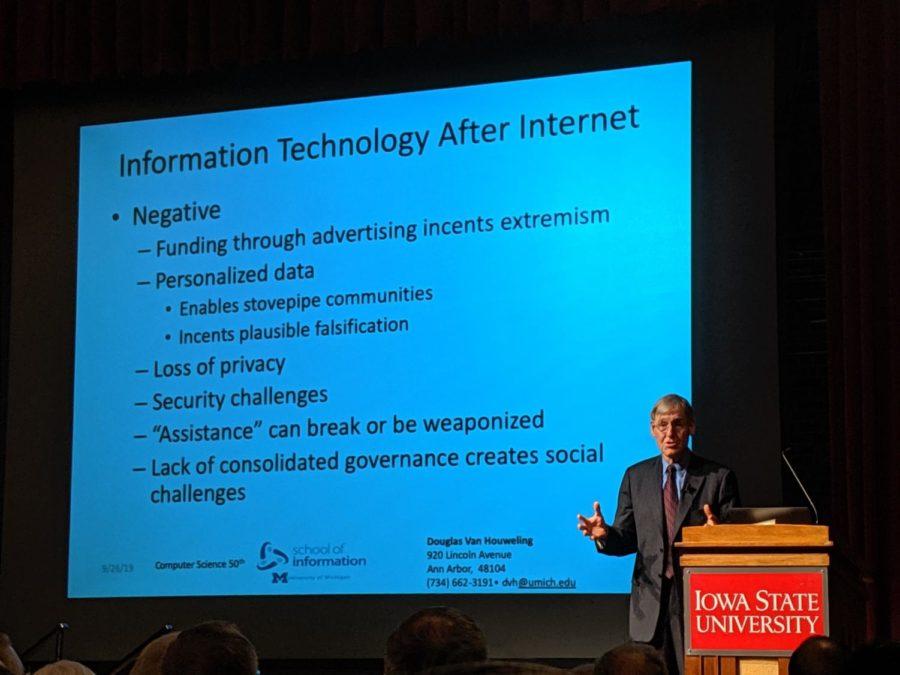Iowa State computer science celebrates 50 years
Sebastian Krembuszweski/Iowa State Daily
Douglas Van Houweling, professor emeritus in the School of Information from the University of Michigan, discussing his journey in the computer science field for the 50th anniversary of computer science at Iowa State on Sept. 26.
September 26, 2019
As part of the 50th anniversary of computer science at Iowa State, Douglas Van Houweling, professor emeritus in the School of Information from the University of Michigan, discussed his journey as a professor in the computer science field.
Houweling is most notable for being the CEO of the national computer research and networking consortium, Internet2 and his induction into the internet hall of fame a few years ago.
Houweling originally studied at Iowa State in 1961, following both of his parents. He currently works at the University of Michigan, but has also done work at other institutes around the country, including Cornell University and Carnegie Mellon University.
At Iowa State, Houweling said he was getting familiar with the IBM 650, IBM 7074 and the IBM system 360 which at the time, were some of the newest forms of computers being used for the general populous, but were not at all common. At that time, there was talk of open networks being developed and further upgrading the current state of the computer.
Houweling then talked about the development of the National Science Foundation Network (NSFNET) which can be seen as the beginnings of the internet being spread to a few thousand people by 1992, all being connected with each other.
By 1994, NSFNET spread to about 94 countries, with 50 million people using its services all over the world.
“Whatever you thought as valuable information, or whatever you thought could be a source of knowledge for yourself, could all be found on the internet,” Houweling said. “Everything that could be seen as precious to others, turned into a tsunami of information.”
With all of the success and development happening to the internet, Houweling talked about how amazed he was on how far it’s gone, compared to he and his teams original expectations when they first had mutual success.
“We didn’t have any notion for the application,” Houweling said. “It wasn’t built for television, it wasn’t built for telephones, it was built to move bits of data, I often used to say that the only place the internet could have peaked is was within higher education and nothing else.”
Even with all of the advancements and great accomplishments the internet has done for humanity, Houweling acknowledged there have been negatives to the internet such as personalized data, loss of privacy, security challenges and lack of consent.
One of Houweling’s closing remarks included how the network has become steadily more ubiquitous and reliable and even a human right.
Houweling said how it’s in our nature for us to be together and that the internet has done so much for people and will continue for years.
“This vigorous and over presence for reliable communication means that we won’t ever be out of touch with the people who we want to be in touch with,” Houweling said. “We will always have them at our side, till the bitter end.”

















